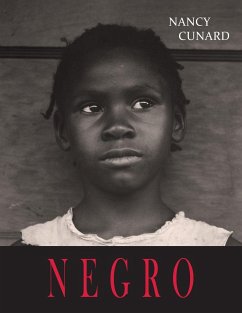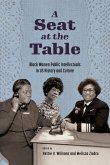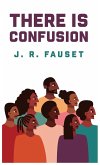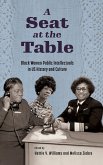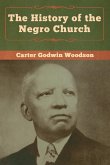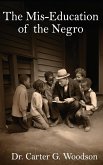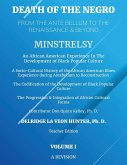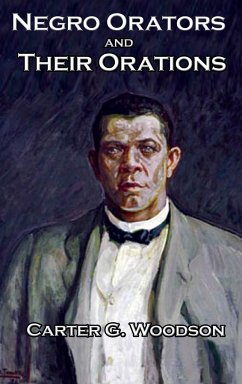Reprint Edition of the 1934 Edition. This is the abridged edition of Nancy Cunard's classic collection. In 1934, Nancy Cunard self-published this volume in an edition of 1000 copies through her Hours Press. She was an odd source considering she was a wealthy white Englishwoman. Nonetheless, the volume was very well respected. Chapters in the book cover "Slavery," "Patterns of Negro Life and Expression," "Negro History and Literature," "Education and Law," and more. Langston Hughes, Zora Neale Hurston, William Carlos Williams, Samuel Becket, and others contributed to the text. Mostly neglected in Cunard's own time, Negro has attained the status of a cult classic. The list of contributors--represented in poetry, prose, translations, and music--is a who's who of 20th-century arts and literature: Louis Armstrong, Samuel Beckett, Norman Douglas, Nancy Cunard herself, Theodore Dreiser, W. E. B. DuBois, Langston Hughes, Zora Neale Hurston, William Plomer, Arthus Schomburg, William Carlos Williams, and more. In its subject and international approach, Negro was generations ahead of its time. Its exploration of black achievement and black anger takes the reader from life in America to the West Indies, South America, Europe, and Africa. Though very much of its time, Negro is also timeless in its depiction of oppressive social and political conditions as well as in its homage to myriad contributions by black artists and thinkers. The story behind Negro: An Anthology is as legendary as its contents. In the late 1920s, Nancy Cunard, socially conscious, British, white, upper-class nonconformist and heir to the famed Cunard Shipping Line, married a black man and single-handedly put out 100 copies of a groundbreaking anthology. The work contained essays, poetry, short stories, and political propaganda from the era's finest Afro-American writers, along with valuable contributions by several white writers, including William Carlos Williams, Samuel Beckett, and Theodore Dreiser. In this invaluable reprint, we can see how broadly Cunard's interest in the "Negro question" ran. In chapters dealing with slavery, history, education, and the arts--as well as Latin America, Europe, and Africa--Cunard includes the poetry of Langston Hughes and Sterling Brown; Zora Neale Hurston's anthropological study of the "Characteristics of Negro Expressions"; James Ford's legendary "Communism and the Negro"; and glimpses into the conditions and folk customs of blacks in Trinidad, Barbados, Cuba, Brazil, Uruguay, Paris, and West Africa. The most poignant writing, however, is her own account of the infamous case of the Scottsboro Boys, a group of innocent blacks falsely accused of raping two white women, which resulted in their near-execution. Although much of the communist-friendly content of Negro may seem naive by today's standards, the collection still stands as one of the most unique and esoteric compendiums of 20th-century Afro-American literature. --Eugene Holley, Jr.
Hinweis: Dieser Artikel kann nur an eine deutsche Lieferadresse ausgeliefert werden.
Hinweis: Dieser Artikel kann nur an eine deutsche Lieferadresse ausgeliefert werden.

